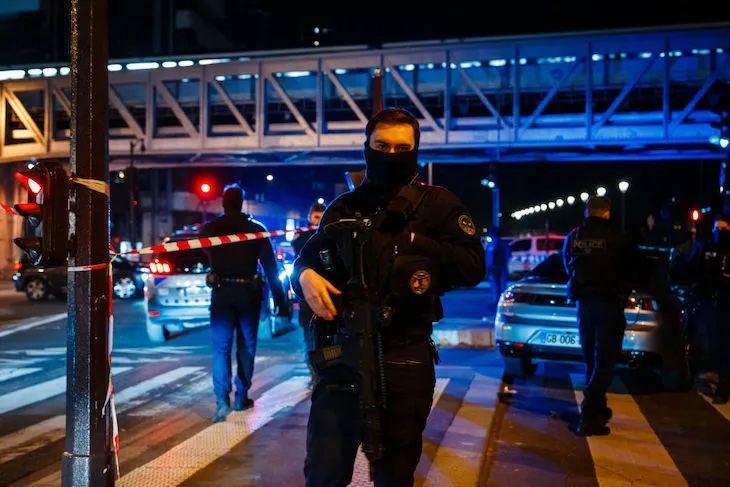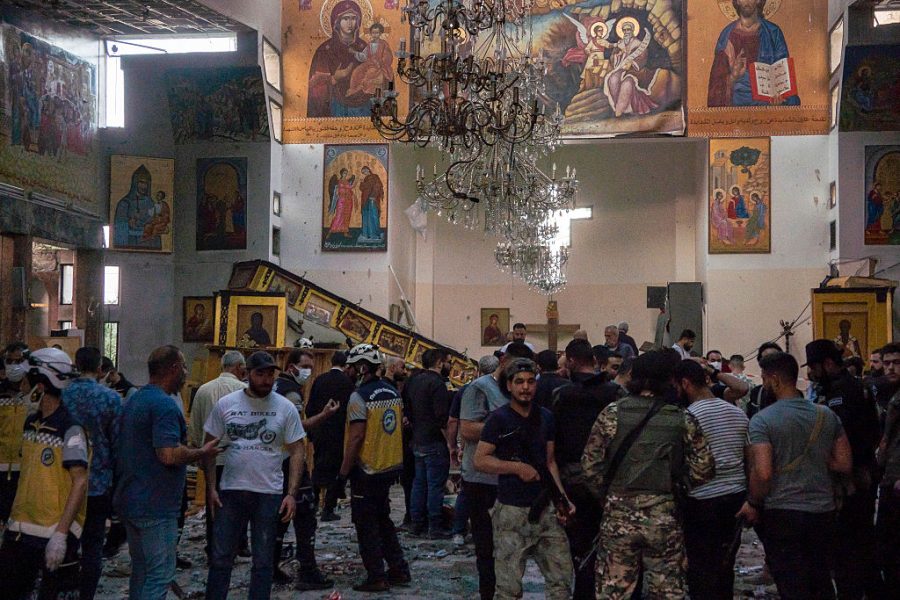There was more bloodshed in Paris this weekend, this time involving a man who, prosecutors claim, had pledged allegiance to the Islamic State (IS). A German tourist was killed as he strolled close to the Eiffel Tower with his wife during the attack on Saturday evening. Two other passers-by, including a Briton, were wounded by the assailant, who French interior minister Gerald Darmanin said shouted “Allahu Akbar” and ranted about Muslims dying in Afghanistan and Palestine as he launched his deadly assault. Police used a stun gun to stop the man who is being questioned by anti-terror police.
France is supposed to be on high alert following the outbreak of war in the Middle East, but there are mounting questions about how this attack was not prevented. The alleged killer had served four years in prison for planning a radical Islamist attack before being released in 2020 and placed under judicial supervision. This monitoring ended earlier this year, according to a report in Le Figaro, although the man was still subject to what is known as an “Individual Administrative Control and Surveillance Measure,” which is run by the interior ministry.
This system has clearly failed, just as it failed in the case of the Islamist terrorist who killed Dominique Bernard, the Arras schoolteacher. So far, the reaction from Macron’s government has been characteristically feeble. Prime minister Elisabeth Borne tweeted that France “will cede nothing in the face of terrorism. Never.” After the death of Bernard, Borne had vowed that France “will not give in to violence, we will confront it and we will fight it.”
These are trite and meaningless words, and the French are no longer fooled. They know their government is weak and impotent, as is its judiciary. A poll last week revealed that half of people have lost faith in the justice system, mostly because of weak sentencing that allows violent criminals and extremists to roam the streets.
The head of the French judiciary, Éric Dupond-Moretti, the minister of justice, was himself in court last month to answer a charge of a conflict of interest. He was acquitted, but in many European nations the mere fact that its justice minister was in court would prompt his resignation or dismissal. Not in Emmanuel Macron’s France, where ministers very rarely take responsibility for their monumental and unacceptable errors. Certainly not Darmanin, who came to international attention in May 2022 when he wrongly blamed Liverpool soccer fans for causing trouble at the Stade de France during the Champions League final. In fact, Liverpool fans were the victims of violence inflicted by local gangs; a subsequent inquiry by the French senate strongly criticized Darmanin’s conduct. Far from being punished by Macron, Darmanin was rewarded with an extra ministerial portfolio.
In response to Saturday night’s attack, Jordan Bardella, the president of the National Rally, claimed that “Darmanin’s failure to protect the French people has led to these tragedies and deaths.” But it is not just French people who have been failed by the Republic’s incompetency, as Saturday night’s tragedy demonstrated. And nor is France alone in failing to keep its citizens safe.
Six weeks ago, a Tunisian man living in Belgium shot dead two Swedish footballers in Brussels in the name of IS. It was subsequently revealed Abdesalem Lassoued should not have been in Belgium. The 45-year-old had a lengthy criminal record in his native country and the Tunisians had requested his extradition in August 2022; this request had not been acted upon by Belgium and, as a result, two Swedes lost their lives.
Four days after the attack, Belgium’s justice minister, Vincent Van Quickenborne, resigned because of what he admitted was a “monumental and unacceptable error with dramatic consequences.” Van Quickenborne had the good grace to quit — but in France those in charge rarely face the consequences.
The atrocity in Brussels was committed the week after Dominique Bernard was stabbed to death outside his school in Arras. When it was disclosed that the assailant had been on an extremist watchlist, Macron reportedly ordered a re-examination of all the extremists under surveillance. But no one was sacked or felt obliged to resign for the errors that had resulted in the death of Dominique Bernard. Will any heads roll for this latest — to paraphrase Vincent Van Quickenborne — “monumental and unacceptable error?”
Saturday’s was another symbolic attack, perpetrated at France’s most iconic landmark, committed 236 days before Paris hosts the Olympic Games. Macron’s long-standing dream is to use the Olympic Games to show off himself and his country, but with violence and lawlessness rampant in France that dream is turning into a nightmare.
This article was originally published on The Spectator’s UK website.


























Leave a Reply